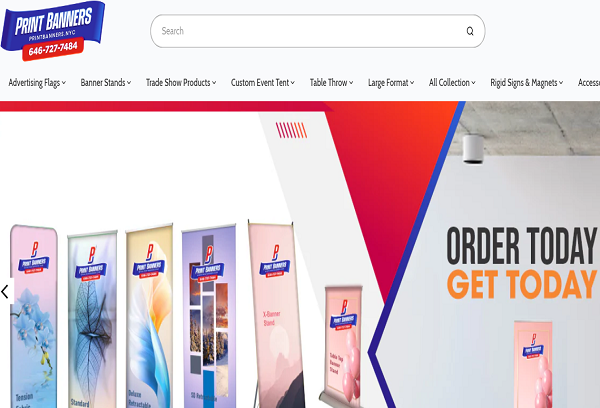Evolving Your Organic Strategy for the Rise of Answer Engines
- October 17, 2024
- SEO
For nearly twenty years, we have operated within a landscape dominated by conventional search engines. However, with advancements in large language model (LLM) technology, we are now observing the emergence of answer engines. Generative AI tools, such as ChatGPT, Perplexity, Claude, and Google’s Gemini, are transforming our approach to organic search. These technologies emphasize providing immediate, conversational responses, which is leading to a decrease in traditional SERP visibility and a surge in zero-click searches.
According to a recent study by Gartner, traditional search volume may decline by 25% by 2026, with organic search traffic potentially falling by 50% as more consumers gravitate toward AI-powered solutions. This shift carries significant implications for businesses that depend on organic search traffic. The pressing question is: How can we adapt to maintain visibility amidst the growing reliance on answer engines?
Another Step Toward Zero-Click Searches
The disruptions caused by generative search technology contribute to an increase in zero-click searches. Over the years, the diminishing SERP space on Google has been driven by the introduction of additional SERP features. Brands that have consistently topped Google’s search results have likely noticed a gradual decline in traffic.Google’s SERPs have evolved considerably, prioritizing featured snippets, knowledge panels, and generative AI summaries, which leaves less room for conventional organic listings. Presently, 60% of Google searches do not result in a click, a trend expected to rise as AI features become more prevalent.
As AI platforms continue to provide answers without directing users to external websites, brands relying on SEO must diversify their traffic acquisition strategies.Traditional search is contracting, and brands are not just vying for rankings on Google; they are competing for visibility on AI-driven platforms where the dynamics are fundamentally different.
The Emergence of Generative Engine Optimization (GEO)
Generative engine optimization is an evolving discipline focused on optimizing an entity to be included in the responses generated by AI applications and models such as ChatGPT, Gemini, Google’s AI Overviews, Claude, and Perplexity. ChatGPT, for instance, averages around 3 billion sessions each month. While this figure is still a fraction of Google’s 80 billion global monthly sessions, it certainly warrants attention.
Is GEO Simply SEO?
If you’ve explored the outputs from platforms like Perplexity and ChatGPT, you may have noticed significant differences compared to Google Search results. Many clients of our agency have inquired whether the rise of AI-driven platforms necessitates a new approach or if traditional SEO methods remain applicable. While several components of GEO are crucial for SEO, there are essential distinctions to consider that will influence your brand’s performance on generative engines more than on standard search engines.
Based on the limited research available and our own testing thus far, the following factors are critical for boosting visibility in answer engines such as ChatGPT and Perplexity:
- Structured Data: Concentrate on key entities (people, places, concepts). Use clear terminology and provide context to aid AI in understanding their significance. Link to authoritative sources and markup entities to enhance AI recognition.
- Citations: ChatGPT favors high-authority publications, making citations vital. To enhance your performance, target reputable sources utilized by ChatGPT to boost your brand’s inclusion in its responses.
- Natural Language: Content strategies should evolve to address complex, multifaceted questions rather than merely focusing on specific keywords.
Let’s delve into each of these pillars in more detail.
1. Structured Data: Optimizing for Entity Recognition
AI tools generate answers by identifying patterns and context. Therefore, your content needs to be easily understandable for these engines. Structured data is essential for this process. By using schema to mark up your content, you assist AI platforms in recognizing entities—such as individuals, locations, products, and organizations—and linking them to relevant queries.
Entity optimization is especially crucial for LLMs, which depend significantly on structured information to categorize and present your brand accurately. Developing ontologies aids AI models in delivering precise information by outlining relationships between entities and content. Think of ontology as a structured map of meaning. Creating content connected to key entities within your site enhances the accuracy of indexing by search engines and LLMs. By incorporating ontologies into your website’s architecture through schema, linking, and navigation hierarchy, you provide a user-friendly experience and allow AI-driven search results to surface accurate brand information.
2. Citations: The Value of Being Cited
One of the most critical aspects of GEO is ensuring that authoritative sources cite your brand. Unlike traditional search engines, AI-driven tools do not crawl the web in real time; they use retrieval-augmented generation (RAG) to create answers based on previously collected trustworthy information. If your brand is not cited in reliable sources, it is unlikely to be referenced in AI-generated responses.
This highlights the importance of digital PR and being mentioned by high-authority publications. Focusing on these outlets and securing citations will significantly improve your visibility on generative AI platforms. The strategy is straightforward: to be included in AI outputs, your brand must be trusted and referenced by the sources that inform these models.
3. Natural Language: Transitioning to Conversational Content
Traditional SEO typically emphasizes keywords, but in an AI-driven landscape, natural language takes precedence. Answer engines are designed to respond to complex, conversational queries, meaning your content must adapt to address nuanced questions rather than simply targeting individual keywords.
This transition toward a conversational style is crucial for success on platforms like ChatGPT and Perplexity. Brands should aim to create content that feels human, addresses real user concerns, and is organized in a manner that AI can easily understand. It’s no longer just about producing SEO-friendly content; it’s about crafting material that AI platforms can rely on to provide accurate and valuable information. This trend will also positively impact your strategy on Google Search, which prioritizes content created by genuine subject matter experts (consider E-E-A-T).
The Opportunity Cost of Ignoring AI-Driven Search
Gaining visibility in generative engines is not merely about increasing website traffic; it’s about ensuring your brand appears in response to relevant queries. Being cited is arguably more critical than merely repeating your content based on how users engage with these platforms today.
As the adoption of these platforms expands, I anticipate that the concept of GEO will become integral to brands’ organic strategies. Failing to be referenced in ChatGPT could become the modern equivalent of not ranking on Google.
Rethinking Metrics: Share of Model
As generative AI transforms organic search, we must also reassess our metrics. Conversational searches on platforms like ChatGPT capture nuances and interests that traditional keyword analysis cannot adequately address. The classic metrics we have relied upon will likely diminish in relevance and effectiveness over time. However, a new metric, share of model, is gaining traction.
Share of model refers to the frequency with which your brand is cited in AI-generated responses across answer engines. Evaluating how often your brand is mentioned and which sources contribute to these responses will become critical success indicators in this new landscape.
Getting Started
To better understand your brand’s performance on platforms like ChatGPT, focus on three key areas:
- Brand Perception Research: Assess how AI platforms perceive your brand and use this insight to enhance your visibility on referenced sources.
- Content Research: Investigate the content types and formats favored by AI-driven search engines. Concentrate on structures and formats that resonate with AI algorithms for the terms your customers are likely to use when seeking information.
- Cited Sources: Target high-visibility content sources used by ChatGPT and Perplexity for relevant search terms to improve your brand’s inclusion in their responses.
Diversify or Be Left Behind
Now is the time to look beyond traditional SEO principles. As answer engines gain prominence, optimizing for AI outputs will become increasingly vital. By adapting your approach today, you can secure your brand’s position in the AI-driven search landscape and ensure you remain visible in a world where conventional SEO tactics are insufficient for driving organic growth.
At Earn SEO, a leading local SEO company in New York, we specialize in helping businesses navigate the evolving landscape of digital marketing and search engine optimization. By embracing the changes brought about by generative AI and optimizing your strategies accordingly, you can ensure that your brand remains competitive and visible in the ever-changing search environment.
Earn SEO was established in 2011 by Devendra Mishra, a highly educated professional with varied training and experience. Mr. Mishra is responsible for business development, attracting new Earn SEO partners, and interacting with clients, the media and press, and acting as Brand Ambassador.
Devendra Mishra
Founder






































